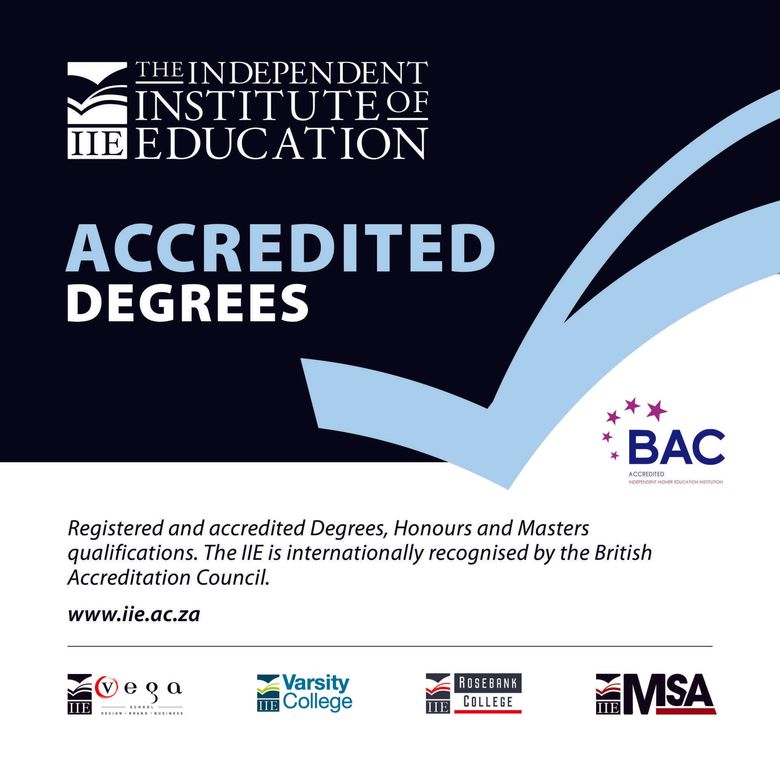GRADE 9 SUBJECT CHOICES: AVOID RISKY SELECTIONS IN FACE OF CHANGED REQUIREMENTS
The World of Work • April 17, 2018
In coming months, Grade Nines will choose which subjects to pursue during their final school years and on which they will be tested when they sit for their final Matric exams. And while the Department of Basic Education announced the withdrawal of the "designated subject" list earlier this year - the list of subjects from which students who want to pursue a degree after school have had to select their subjects – there are some serious considerations not to be ignored, an expert says.
"Some may argue that the withdrawal of the designed subject list gives young people more choices, but we urge schools and learners not to make risky and uninformed changes," says Dr Felicity Coughlan, Director of The Independent Institute of Education, SA's largest private higher education provider.
She notes that the original list contained many of the traditional subjects used to gain access to University, and that many of these subjects required learners to master skills that will be important for them to succeed in higher education after admission.
"These skills include argumentation and reasoning, found in subjects such as History, logic and mathematics as found in Accountancy and Maths or Maths Literacy, and evidence and scientific reasoning skills, as found in Physical Science and Life Sciences.
"Additionally, the two-language requirement also ensured a well-rounded educational experience for students living in a multilingual country. The reasoning behind the original inclusion of these subjects should be remembered, and students are encouraged not to put together a collection of subjects that are all of one type which will result in them developing less holistic academic skills. The impact on their studies later in life will be real," says Coughlan.
In addition, learners considering their subject choices should remember that despite the change of requirements at school, Universities were not at the same time required to change their admission requirements.
"Higher education institutions need not change entry requirements if they don't want to, and one can be sure that many – if not most – won't. Definitely not in the short term, and particularly not for those qualifications that currently require Mathematics or Life Sciences. We therefore encourage learners to do their homework before opting out of these traditionally required subjects."
The third consideration follows from the first two, says Coughlan.
"Some subjects, such as Design, were omitted from the original list but have been accepted by some institutions for several years now as part of conditional admission requirements for certain qualifications. Design thinking is a strong and necessary skill for modern living and it is likely that it will become more and more acceptable for admission to higher education."
Design therefore is one of the examples that should be considered as part of a portfolio of creative subjects after learners have checked its acceptability to the higher education institution of their choice, Coughlan notes.
"In light of these changes in subject choice requirements, and given the risk of learners opting for perceived easier subjects or subjects that are too similar in nature, we urge learners to investigate their options carefully, and schools to support them in making informed decisions," says Coughlan.
"The public higher education sector is not likely to change quickly to accept subjects they currently do not accept, and while the private higher education sector may be more progressive, our advice remains the same as it has always been: to select subjects that keep your study options open. This means learners should include at least one subject in which they know they can excel, and then others that will teach you a range of different skills.
"In today's volatile and uncertain world, it is more important than ever before to cultivate an extended base of skills from which you can draw, to improve your chances of succeeding."
DID YOU KNOW?
The Independent Institute of Education (The IIE) is a division of the JSE-listed ADvTECH Group, Africa's largest private education provider. The IIE is the largest, most accredited registered private higher education institute in South Africa, and the only one accredited by The British Accreditation Council (BAC), the independent quality assurance authority that accredits private institutions in the UK. By law, private higher education institutions in South Africa may not call themselves Private Universities, although registered private institutions are subject to the same regulations, accreditation requirements and oversight as Public Universities.
The IIE has a history in education and training since 1909, and its brands - Rosebank College, Varsity College, The Business School at Varsity College and Vega - are widely recognised and respected for producing workplace-ready graduates, many of whom become industry-leaders in their chosen fields. The IIE offers a wide range of qualifications, from post-graduate degrees to short courses, on 20 registered higher education campuses across South Africa.












